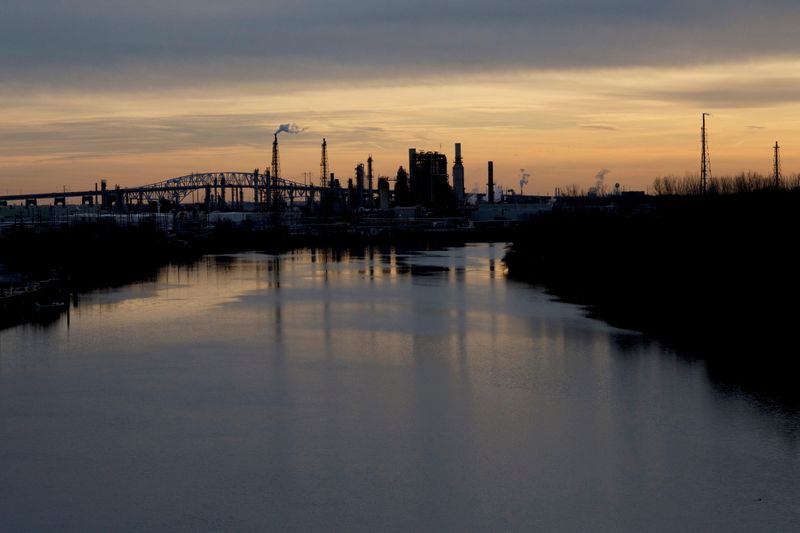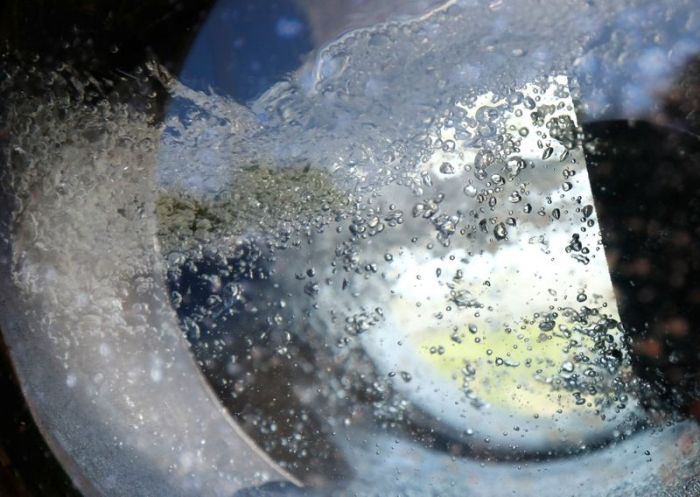(Reuters) – Thirteen U.S. oil refineries released the cancer-causing chemical benzene in concentrations that exceeded federal limits last year, according to government data published by the green group Environmental Integrity Project (EIP) on Wednesday.
The study is based on the second full year of data reported by U.S. refineries since the Environmental Protection Agency (EPA) in 2015 began requiring continuous monitoring of air pollutants around plants to protect nearby communities, many of which are disproportionately poor, Black and Hispanic.
In 2019, eleven refineries made the list, EIP said.
“If the Biden EPA wants to act on its environmental justice promises, these neighborhoods near refineries are a great place to start,” Benjamin Kunstman, staff engineer at EIP, told Reuters.
For eight of the 13 refineries, benzene levels exceeded the EPA standard of nine micrograms per cubic meter of air at the fencelines at the end of every quarter in 2020, according to the report.
When refineries monitor results that exceed the action level, the program requires them to undertake root cause analyses and corrective actions to reduce benzene, the EPA said in a statement.
The agency said it was “committed to reducing benzene and other air toxic emissions from refineries and protecting those communities most at risk from air toxics.”
Louisiana was home to five of the refineries on the EIP list -the largest share of any U.S. state, according to the report.
“Clearly we’re in a calamitous situation here,” Anne Rolfes, director of anti-pollution group Louisiana Bucket Brigade, said on a call with reporters, saying state regulators had failed to reign in serial benzene polluters.
MONITORING LEVELS
The highest emitter of benzene in 2020 was Delek’s Krotz Springs, Louisiana refinery, which averaged more than 31 micrograms per cubic meter last year – more than three times the EPA’s action level, according to EIP.
A spokesperson for the refinery said the company had implemented a number of measures in September 2020 to reduce benzene emissions, and anticipates the rolling 12-month average will fall below nine micrograms per cubic meter by this summer.
“Delek is focused on serving as a good steward of the environment and supportive member of the communities in which we operate,” the spokesperson said.
Four other refineries on the list were in Louisiana – PBF Chalmette, Phillips 66 Lake Charles, Phillips 66 Alliance, and Shell Norco.
In neighboring Texas, Total Port Arthur, Marathon Galveston Bay, and Citgo Corpus Christi East exceeded the federal level.
Other refineries included Shell Chemical Mobile in Alabama, HollyFrontier Lovington and HollyFrontier Artesia in New Mexico, and Marathon Catlettsburg in Kentucky.
Philadelphia Energy Solutions’ facility in Philadelphia, meanwhile, was the only plant on the list that was not actually operating in 2020. The refinery shuttered in 2019 but continued to exude the chemical while its tanks were being emptied.
Operators of several of the plants, including Marathon and Citgo, said their average emissions had been bumped higher by once-off operational mishaps. Citgo said the event that caused the release that exceeded federal levels around its plant was not onsite or related to Citgo.
Most of the companies, including Marathon, Citgo, Total and Phillips 66, said they were exploring measures to ensure future benzene emissions levels are lower.
“We have identified the areas of focus and are aggressively working to address the issues,” said a spokesperson for Total in a statement typical for the group.
(Reporting by Laura Sanicola and Laila Kearney; Editing by Steve Orlofsky, Aurora Ellis, Marguerita Choy and Richard Pullin)



















